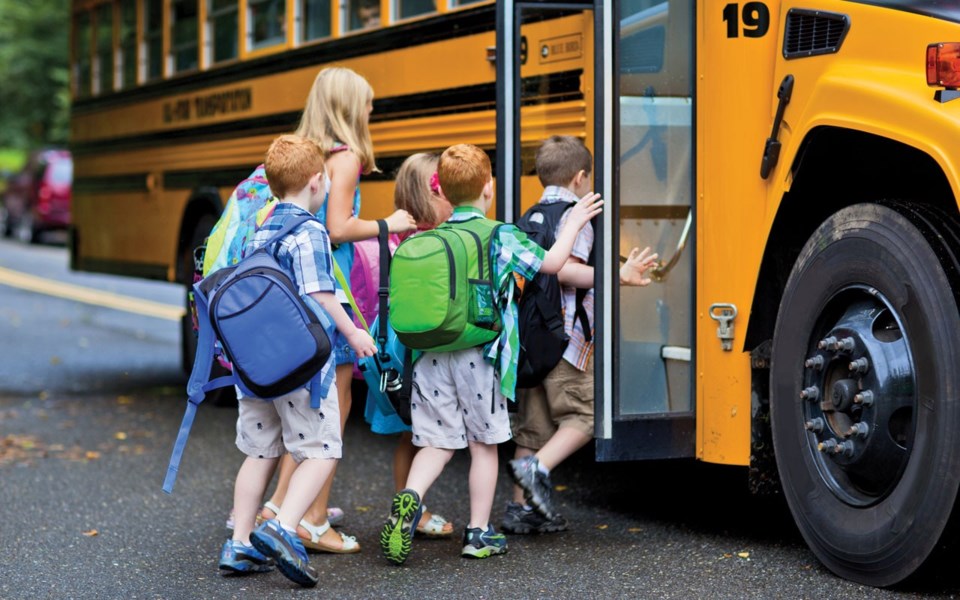A group of B.C. parents is lobbying the provincial government for a rapid shift to electric school buses.
"It just seems to me like we're being totally outpaced by other parts of North America—like California and New York state and Virginia [in terms of] buying electric school buses—and sometimes buying them from Canadian inventors," said Whistlerite Paul Shore, who is helping lead the efforts as part of the advocacy group For Our Kids.
An engineer with decades of experience in tech, Shore said he got interested in the idea after attending a workshop on Cortes Island led by environmental activist Tzeporah Berman.
There's becoming a bit of "pent-up interest" for electric buses, "but here's the thing: the buses are expensive, just like electric cars are still expensive," Shore said.
"And I think that's what holds the school boards back, is they don't have budget to buy anything other than a diesel school bus."
A new electric school bus costs about $270,000, according to an October 2018 study conducted by the Salt Spring Community Energy Group in School District 64 (not including charging infrastructure, which the study estimated would cost more than $100,000 for 12 buses).
But the study also found the district could save about $50,000 annually in fuel and maintenance costs.
On March 9, the provincial government announced that the 2020-21 bus acquisition program includes $13 million for 101 new buses in 31 school districts—including up to 15 electric buses.
Districts that buy electric buses will also have access to provincial funding for charging-station infrastructure.
"Our response was basically, 'hey, that's a good start, but 15 out of 101 buses in the year's budget, that leaves 86 buses that are diesel ... That's locking us in to more exhaust to be inhaled by our kids and more carbon into the atmosphere," Shore said.
"So we're going to keep trying to accelerate that transition."
Switching from diesel buses might not make a huge dent in provincial emissions, but "everything helps," Shore said, and the health impacts to kids—as well as the knock-on effects—make the effort worth it.
"Let's say next year kids in our district, or some of them, got to get on an electric bus. Their minds are going to be blown," Shore said.
In the short term, the buses might get the kids talking at the dinner table, he added.
"Long-term is, it's not that long before they become drivers, right? And then they become purchasers or rideshare users, and they start demanding electric vehicles," he said.
"So I think there's some really positive both short and long-term knock-on effects from exposing kids to electric buses."
Shore and For Our Kids have been in contact with School District 48 (SD48), and a presentation to the school board is being planned for sometime in April.
"We think it's great that there is this local initiative in Whistler," said SD48's director of operations Ian Currie, adding that he's been in contact with the Ministry of Education, and has received a cost analysis comparing diesel and electric buses.
"So there's lots of information out there ... It's something that our district is looking at, and we're very interested in exploring this option."
SD48 has about 30 buses in total, each lasting between 12 and 15 years.
The district submits capital requests for bus replacements each year through the ministry, usually requesting two or three bus replacements.
"I'm hoping that we can at least get the ball rolling (on electric buses) in this year's submission of our capital plan," Currie said.
Find more info at www.forourkids.ca.




